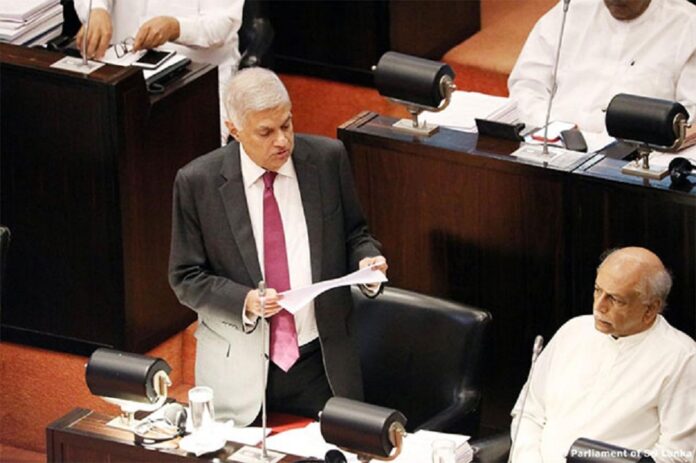President and Finance Minister Ranil Wickremesinghe will present his maiden Budget 2023 in parliament today at 1.30 pm after 45 years in politics of Sri Lanka following his uncle former President JR Jyawardena who was the country’s first Finance Minister, 75 years ago.
In a challenging economic environment with fiscal crisis President Wickremasighe is set to make his budget speech in Parliament as the first finance minister who had to lay the foundation for a 25 year national economic policy for a bankrupt country.
He has to rescue the island nation which is on the verge of a hyper inflation and poor economic management with dwindling foreign reserve burdened with debt default and lack of dollar inflows.
The 2023 budget is aimed at long-term, stable economic growth, the President’s Media Division said adding that it . has given special attention to the sectors of the capital market, export market, labour market, and digital economy and it is expected to achieve the budget targets through the social market economy.
This year’s budget will focus more on providing social welfare benefits to the people who need them most and creating a policy environment to build the private sector as the driving force of the country’s economy.
It is likely to include measures to increase taxes on fuel, tobacco and alcohol to boost revenue while reviving an old cost of living allowance for public and private sector workers to cushion rising living costs.
Increasing tobacco and alcohol taxation will raise government revenue without affecting economic growth. Budget 2023 is likely to introduce a model of indexation which automatically links tobacco tax rises with the size of the economy and inflation.
Budget 2023 will implement new tax reforms with the possibility of introducing the wealth tax which was in the pipeline for several years as well as new super gain tax, new capital gain tax, modified surcharge tax, land tax, personal property tax, corporate tax, and capital gains tax.
There are around 4 million families, which make up nearly 58 per cent of the country’s households and they are seeking financial assistance from the government under various social welfare schemes to survive from the ongoing economic crisis, Finance Ministry sources revealed.
The budget is to focus on introducing social security net for those families while providing relief for the low income earners and the middle class estimated to be between 15 to 20 percent of the country’s urban population facing economic hardships at present.
Accordingly, the theme of the budget is specified as “making a transformative change via minimum inputs’. It is aimed at strengthening the social security net for the poor and vulnerable communities as well as the middle income earners hit by high cost of living, official sources said.
With the budget being designed under an IMF-framework (aimed at securing the bail-out package), focus would be also on restructuring a number of State-Owned Enterprises (SOEs) and a privatization drive that hopes to raise foreign reserves by US$ 2-3 billion.
